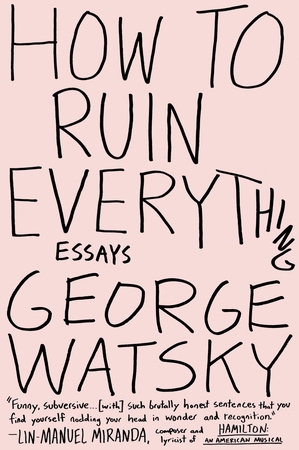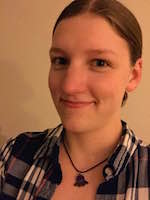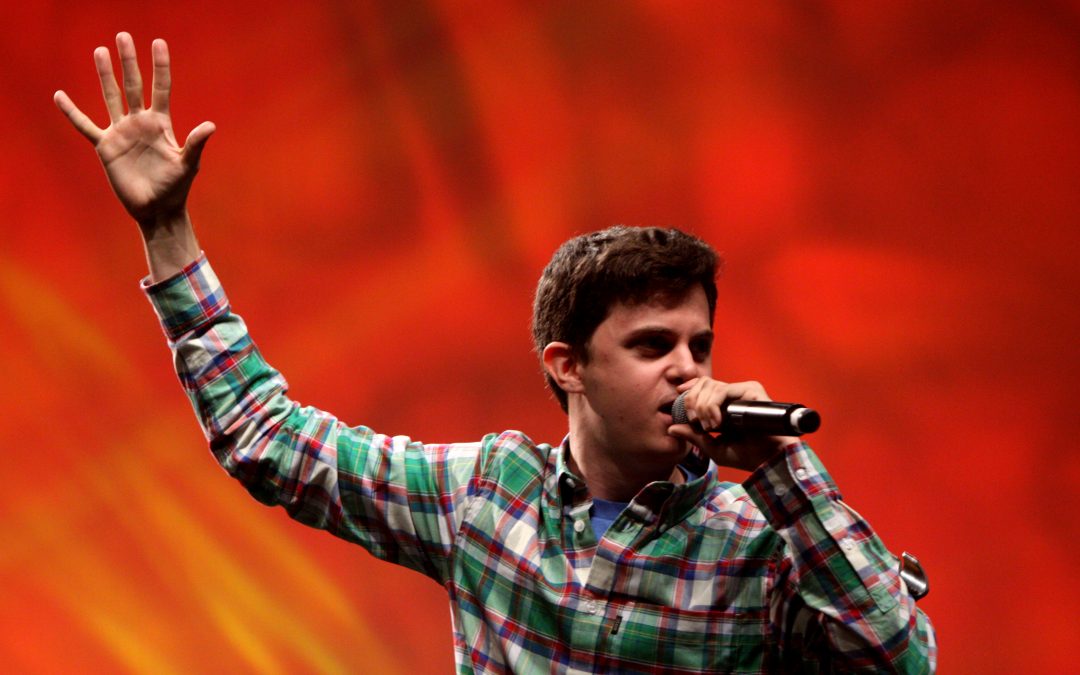Poetry sounds good on the page, right? There’s something so satisfying about scanning the layout of the piece before starting from the top and following the author’s thoughts down the page. It’s a pleasure to note the choices they made for line and stanza breaks, and to follow whatever metaphors or imagery carry the reader to the end.
But there’s something to be said for hearing a piece read aloud without having any access to the written poem. There’s a certain energy in a live performance that doesn’t always translate to the page, and something more immediate about hearing the author present their work directly to the audience.
George Watsky
 George Watsky is a slam poet I’ve recently “discovered.” His debut collection of essays “How to Ruin Everything,” was released by Plume (a division of Penguin Books) last month. He also has a collection of rap albums under his name and has performed on TedTalks.
George Watsky is a slam poet I’ve recently “discovered.” His debut collection of essays “How to Ruin Everything,” was released by Plume (a division of Penguin Books) last month. He also has a collection of rap albums under his name and has performed on TedTalks.
His work is fun. My favorite spoken word piece, by far, is Drunk Text Message to God. Man, do I envy him for coming up with that poem! It’s brilliant. And his execution is great—he amps up the energy so well using meter and rhyme.
His introduction is perfect—casual and humorous as he leads up to some big, big issues. Watsky claims he’s been feeling “existential crisis-y” as if it’s a big joke and not some crippling anxiety that afflicts people every day, then starts his poem with “Last night I drunk text messaged God,” which earns some laughs, and gains speed:
curled in the bed,
the room is spinning,
it’s all in my head.
I can’t get to sleep
and the weight of the world
is the weight of my sheets.
He goes on to describe a church he’s decided to create that
gets Mondays off for religious reasons
throws foam parties in elevators to learn about praise
the roof, the roof, the roof is on fire.
I love the way he plays with language in this piece. It’s a fun experience for such a heavy topic, and he helps the audience laugh about it instead of relenting to the overpowering futility of being alive.
Watsky came into slam poetry when he was in high school and a teacher suggested he divert his high, disruptive energy into Youth Speaks, a nonprofit organization devoted to the literary arts. Reading your work aloud is a great way to unload in a creative and cool way; slam poetry provides ample opportunities for writers to express themselves in a performative atmosphere.
It’s cool to see literary craft elements come to life on the stage.
Slam poets can get away with rhyme in their work in much the same way that rappers and other musical artists can, whereas that sort of thing doesn’t always translate as well in poems on the page. It is one of the elements that keeps up the energy in Watsky’s work, however, and his rhyming never feels lazy. Watsky plays with words and comes at big ideas from smaller, more relatable angles.
If you have the opportunity to attend an open mic reading, you should go even if you’re not planning to read. It’s a great experience for both the audience and the performers.
Perform your work aloud in the Twin Cities:
Button Poetry Live is held on the first Monday of every month at Camp Bar in St. Paul.
Poetry Slam MN is held the fourth Tuesday of every month at Kiearan’s Irish Pub in Minneapolis.
Re-Verb Open Mic, sponsored by TruArtSpeaks, is held every Thursday at the Golden Thyme Cafe in St. Paul.
Check out this fantastic page at Guante: Twin Cities Spoken Word Event Finder for lots more.
Meet the blogger: SANDRA YOUNGS is a recent graduate of Hamline University, where she earned a BFA in Creative Writing. She also holds an AFA in Creative Writing from Normandale Community College and works as an associate editor for Poetry City, USA. She lives in Chanhassen, Minnesota, enjoys eating ice cream in cold weather, and can’t stop writing about trees.
SANDRA YOUNGS is a recent graduate of Hamline University, where she earned a BFA in Creative Writing. She also holds an AFA in Creative Writing from Normandale Community College and works as an associate editor for Poetry City, USA. She lives in Chanhassen, Minnesota, enjoys eating ice cream in cold weather, and can’t stop writing about trees.


